ONE moment they were in an island paradise, the next they were in hell. This is how death and destruction returned to Australia’s doorstep.
It was the last thing he would see for some time.
Almost three years after co-ordinated Bali bomb blasts blew away Australia’s innocence and placed the resort island on the map as a terror target, we once again became the victims of bombings on Indonesian soil.
On October 1, 2005, three near simultaneous blasts at two packed seafood restaurants at Jimbaran Bay and a three-story noodle and steak house in downtown Kuta away killed 20 people and wounded more than 100 others.
Four Australians were killed and 19 injured.
The finger of blame pointed squarely at terror group Jemaah Islamiyah, whose bombing campaign was led by Southeast Asia’s most wanted man Azahari Husin and his deputy Noordin Top.
Like the 2002 Bali bombings, the attacks used suicide bombers and three bombs; two close to each other and a third at a different location. The targets were also easy-to-hit premises with low security where suspcious young men would go unnoticed.
This is the story of the killers and their victims:
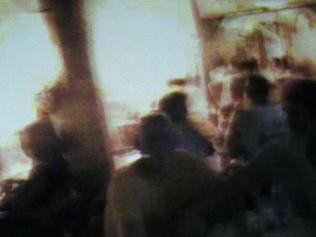
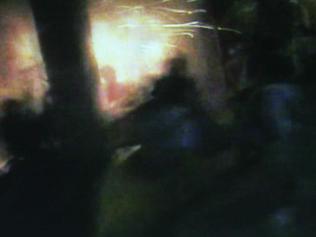
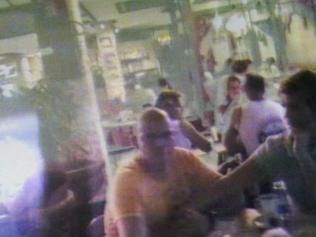
Husband’s search amid the chaos
Sitting with his back to the water as he shared a meal with his wife and friends at Jimbaran Bay, Bruce Williamson saw a man jump out in front of his table -- he immediately knew what was about to happen.
It was just after 7pm. He was out to dinner at one of Bali’s most popular beachside restaurants with a group of friends from Newcastle when a suicide bomber struck.
Minutes later he was searching blindly in the sand for his fatally wounded wife, Jennifer.
“He couldn’t see and he was concerned for mum and he tried to find her,’’ Mr Williamson’s son Adam said.
“He heard someone and went to where he heard and felt the sand and found it was mum.
“She has got little gold ball earrings and he felt her head and found the earrings and called for help.’’Adam said rescuers then put his mother on a table and she “actually gained consciousness and she was calling [dad’s] name”.
“He believes they were in a police car and he was trying to talk to her in the police car,’’ he said.
“But once they got to the hospital he didn’t sort of see her after that.”
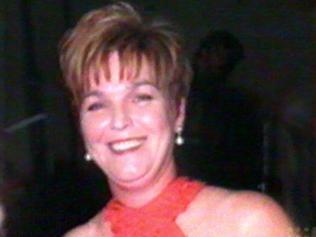
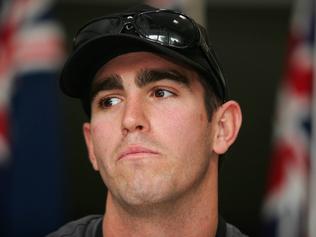
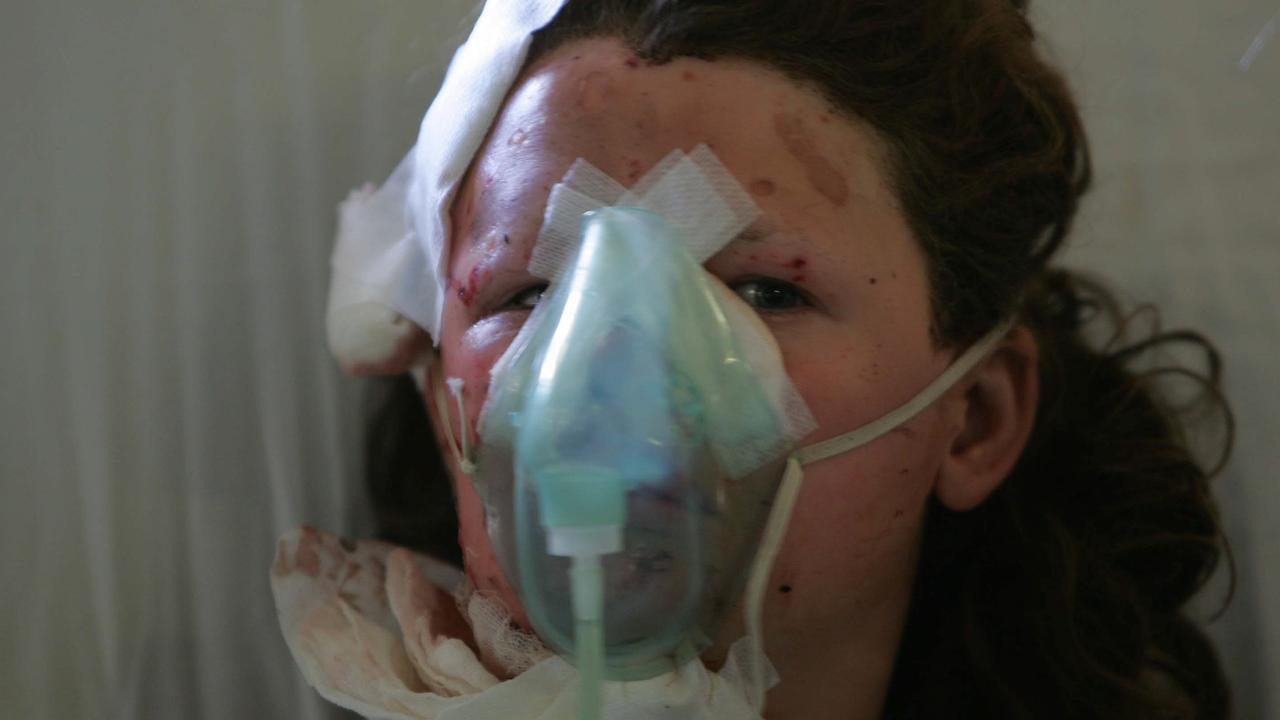
“Where’s my brother?” Jessica Fitzgerald, then just 13 years old, suffered serious burns to her body during the bombing at Kuta.
Brendan never heard his sister’s calls
Still rocked by the separation of their parents, Brendan and Jessica Fitzgerald were whisked away to Bali by their father for a well-deserved two-week holiday.
With her nails freshly painted, Jessica, 13, sat opposite her 16-year-old brother and father Terry at Raja’s cafe in Kuta.
Then the bomb went off, sending a hail of shrapnel and ball bearings into the air, cutting down nearby diners.
Brendan was pronounced dead on arrival at the Bali International Medical Centre.
He was identified as the first Australian fatality of the bombings.
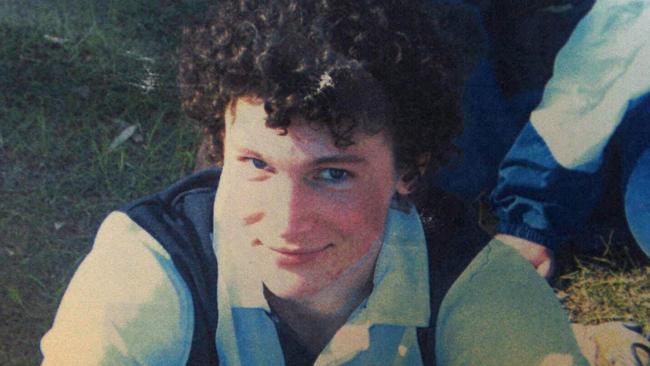
Melbourne woman Jodie Harrison, on holiday in Bali, came to the hospital and comforted the teenager, holding her hand and trying to keep her spirits up in the face of the family tragedy.
The family had decided not to tell Jessica her brother had died until the arrived in Singapore and she had more support around her.
”Where’s my brother? Can you go outside and see if you can find my brother?’’ the teenager begged Ms Harrison, who was forced to hedge on the painful question.
“I’ve told her there have been lots of people injured and they’ve been taken to four hospitals,’’ Ms Harrison said.
“But she keeps asking, ‘Can you find him? Can you tell me if they’ve found him yet?’’’
Jessica — who, like her father, Terry, suffered serious burns to her body — was flown to Singapore for treatment, both unaware of Brendan’s fate.
Members of the Fitzgerald clan gathered in the West Australian seaside town of Busselton to comfort one another and wait for more news.
“It just doesn’t seem real,’’ said Mark Allen, Mr Fitzgerald’s brother-in-law.
“It was their first time to Bali. They were all having a great time, then this nightmare unfolded. It’s a sad, sad story.’’
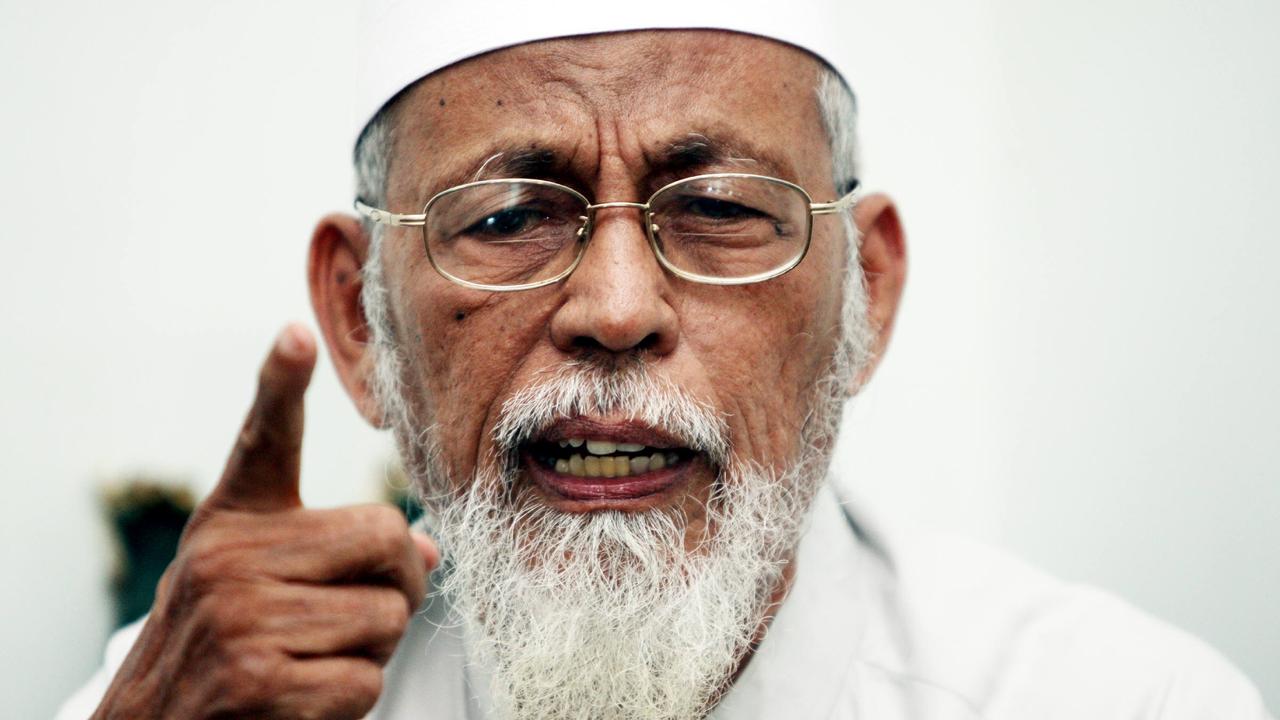
Abu Bakar Bashir — who pledged his support for Osama bin Laden after the 2002 Bali bombings — was regarded as the spiritual leader of Jemaah Islamiyah.
A road map to terror at Australia’s doorstep
As the bombs went off, the mastermind of the attacks in Bali could have been at one of the bomb sites to watch the terror unfold.
Dr Azahari Husin, the most wanted man in Indonesia since the 2002 Bali bombings, liked to be at his target sited to ensure the bombs detonate and the attack goes to plan.
A former university lecturer and gifted mathematician, he was suspected of being Jemaah Islamiah’s top bomb maker.
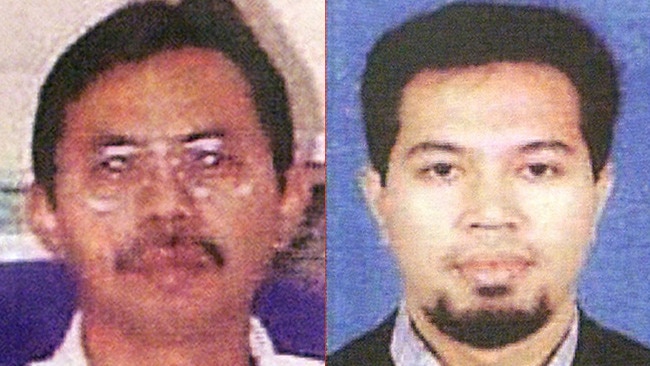
The Southeast Asian terrorist network linked to Al Qaeda, was responsible plotting bomb attacks on foreign embassies, hotels and police targets throughout Indonesia.
The firebrand cleric Abu Bakar Bashir co-founded the group and was thought to be the group’s spiritual leader. However he was believed to have lost much of his influence with Indonesia’s radical fringes.
Analysts believed Husin and his deputy Noordin Mohammed Top may have split from JI to form an even more radical splinter group.
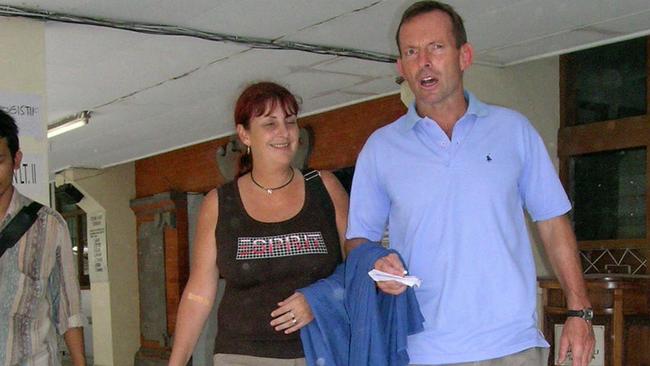
‘I didn’t think lightning could strike twice’
It was 5am in nearby Legian. Tony Abbott, his wife Margie and their three daughters were holidaying in Bali. The phone in their hotel room kept ringing, and ringing and ringing.
The then health minister relented and finally answered the call.
“It was my sister and she was a travel agent and she said ‘are you all right’. I said ‘of course I’m all right’ and she said ‘there’s been a bomb go off’.
“I was incredulous, I didn’t think lightning could strike twice, but it did,” he said.
“So I put the running shoes on and ran down to the heart of Kuta.”
Mr Abbott spent many hours at at the local hospital doing whatever he could to help organise emergency flights and notify family.
Newcastle lawyer Paul Anicich and his wife, Penny, said they were indebted to Mr Abbott.
Mrs Anicich said she was covered in shrapnel and blood when Mr Abbott sat by her bedside and assured her she would be flown to Singapore to be with her husband.
“He was so kind and gentle I will remember it for ever,’’ she said.
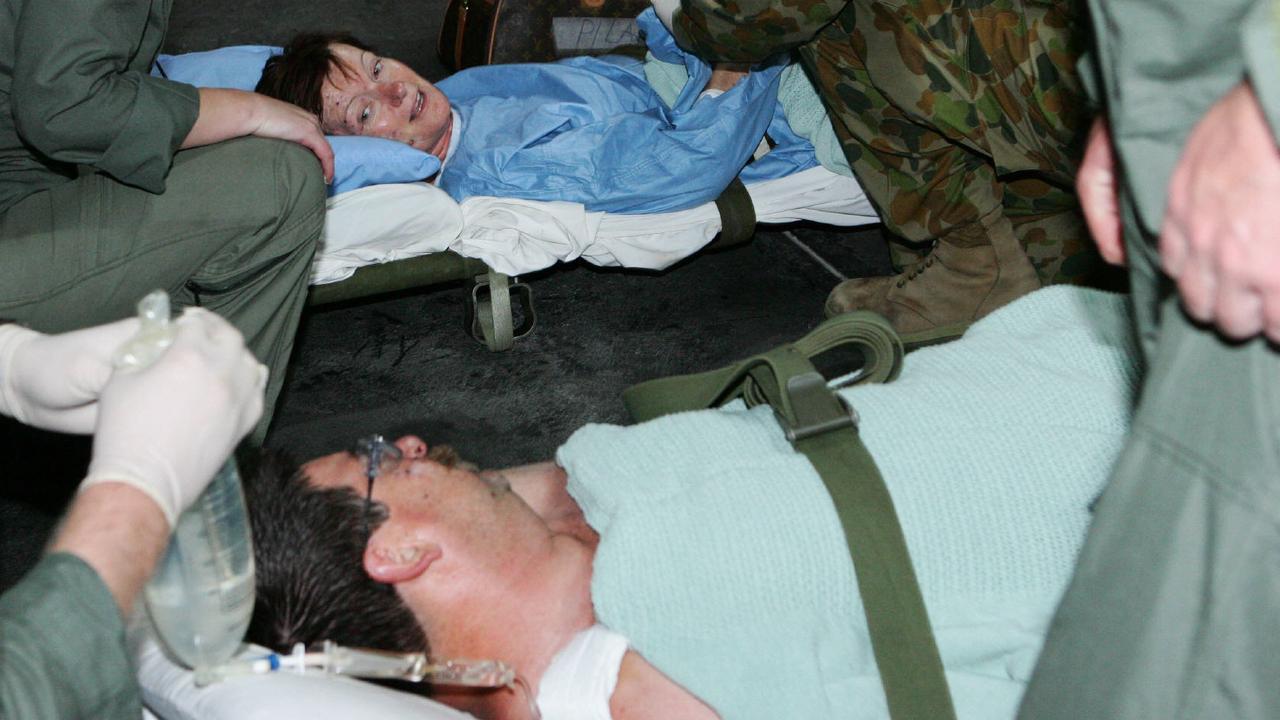
Staying together in the aftermath, wounded tourists Eric and Jenny Pilar are treated by Army personnel before being sent back to Australia.
Mercy flights bring Australians home
Eric and Jenny Pilar exchanged glances from their stretchers, all too aware that their escape from Bali was nothing short of a miracle.
The NSW couple gave each other strength as they prepared to undergo emergency surgery in Darwin for shrapnel wounds and broken bones.
They were sitting with more than a dozen mates at Jimbaran Bay when a bomb exploded metres away, killing three of their closest friends.
Eric Pilar had surgery to remove several pieces of shrapnel from his body while his wife was being treated for a broken leg and two suspected broken ankles.
As the couple were airlifted to Darwin, their children Mitchell, 17, and Alana, 15, flew into Sydney.
They were met at the airport by their aunt Laura Pilar in an emotional homecoming.
“To be truthful we didn’t think that anything like that would happen to one of us, one of our own family,” Mitchell said.
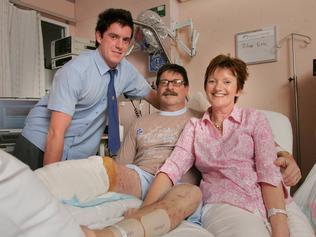
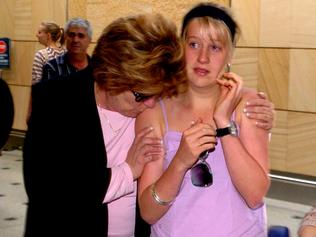
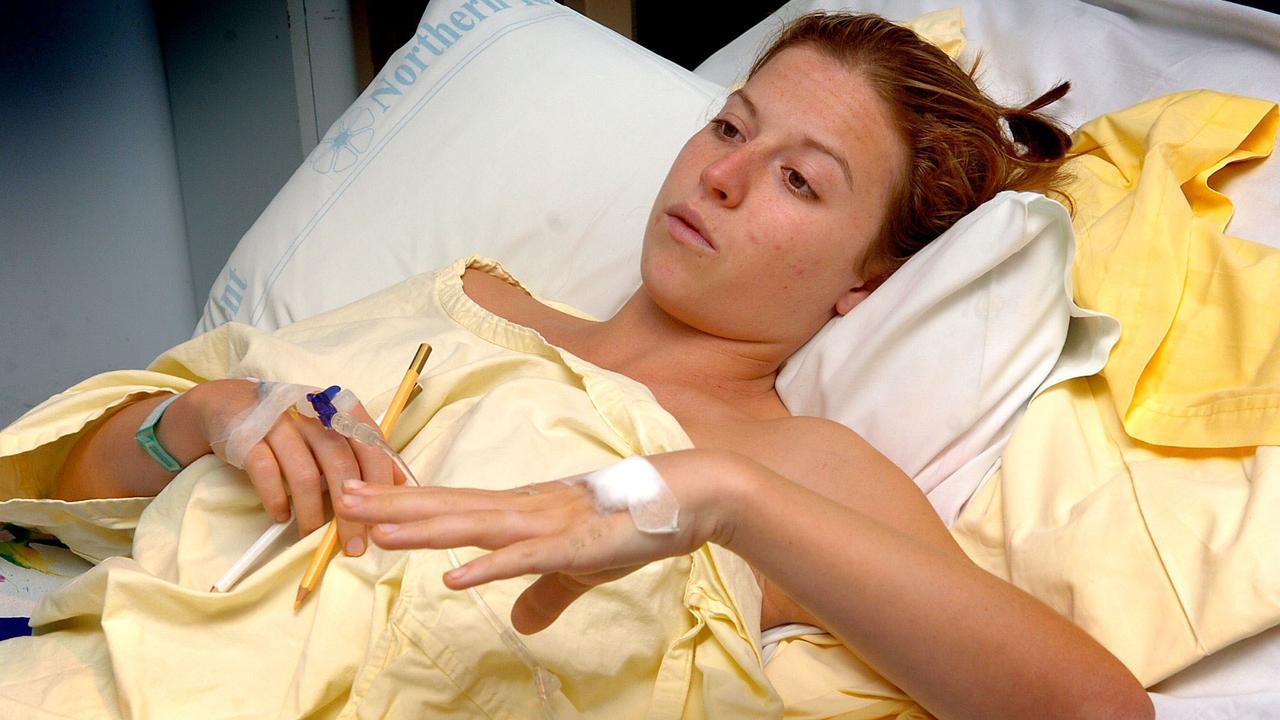
“I knew this would happen.” Then-student Aleta Lederwasch, pictured after being airlifted to Royal Darwin Hospital, had been nervous of another 2002-like incident.
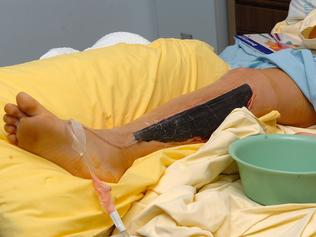
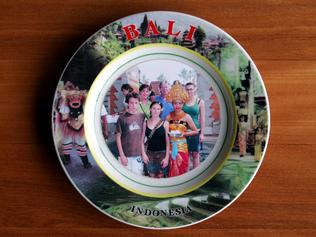
‘I ran after her and that saved me’
Aleta Lederwasch was soaking up the atmosphere at Jimbaran Bay when the sky flashed orange.
“When we heard the first bomb, there was a huge explosion and orange colour, and a lot of people thought it might have just been a gas explosion and tried to remain calm,’’ Ms Lederwasch said.
“I just ran and my mum chased me and that’s why we were so (lucky) we just had minimal injuries.’’
Ms Lederwasch and her mother, Julia, were taken to a clinic for treatment, and eventually evacuated to Darwin in a RAAF Hercules.
The 21-year-old a Newcastle University law student, had to undergo surgery for serious shrapnel injuries to her leg.
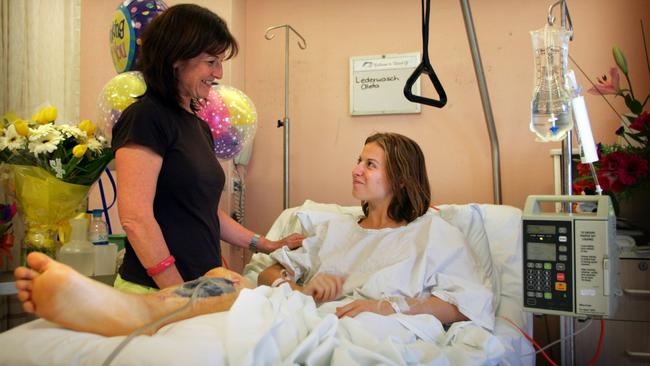
Mrs Lederwasch said her maternal instincts for her daughter probably saved her life.
“I remember we tried to get there just before sunset — the sun was just hanging in the horizon,’’ Mrs Lederwasch said from her hospital bed in Darwin.
“This explosion went off, I was confused at first and Aleta just stood up and said something like “I knew this would happen’ and she got off to run.
“She just took off and my mothering instinct was just to take off after her and be with her and that’s what I did.
“I caught hold of her, we were holding each other and this other explosion happened.”
“And (I was thinking) ‘oh my god that was a second one, are we running into a third one.
“I’m the sort of person that does stay calm but when I saw her rush off, knowing her she would just run and not stop, and so I ran after her and that saved me.”
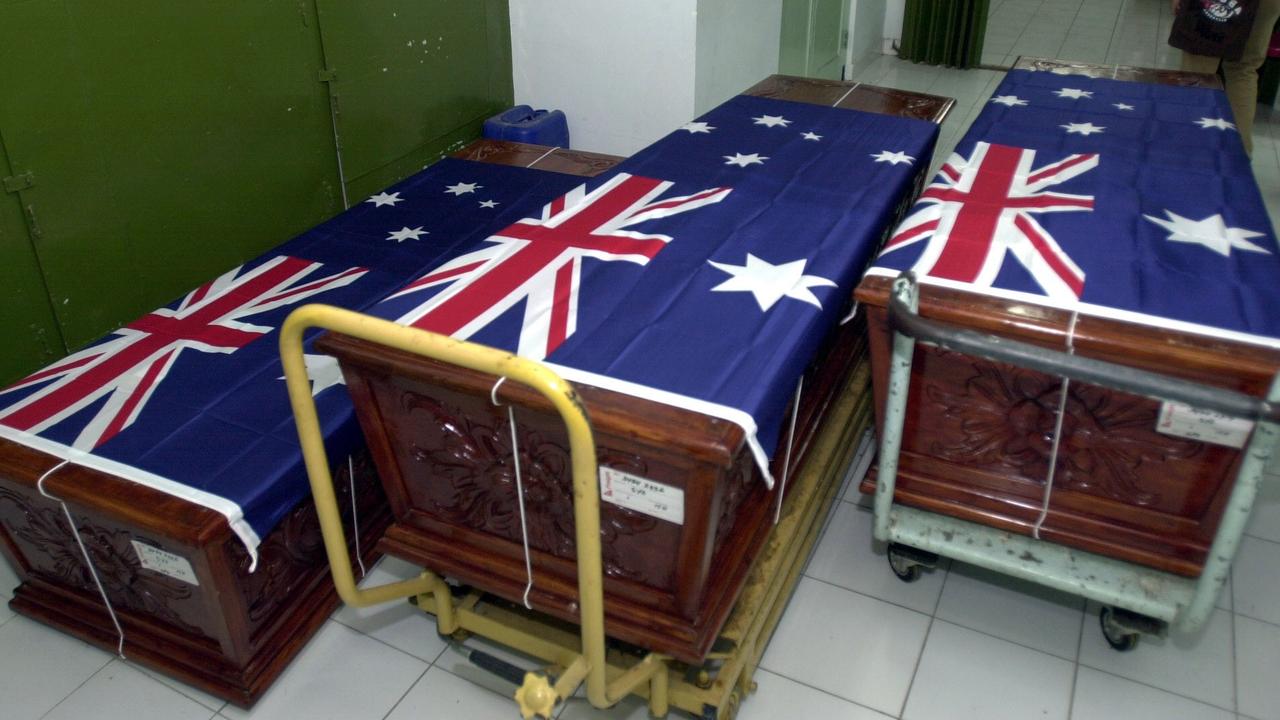
Australian flags draped over the coffins of Collin Zwolianski, Fiola Zwolinski and Jennifer Williamson at Sanglah Hospital in Bali.
Tourists leave as the hunt begins
As Australian holidaymakers poured out of Bali, a multi-national taskforce was left to hunt the perpetrators of the latest deadly bombings.
As the investigation gathered pace, with Australian Federal Police and forensic experts from Britain’s Scotland Yard bolstering the Indonesians, it emerged the bombers indicated all three were wearing explosive vests packed with ball bearings.
The severed heads of the three suicide bombers were put on show by Bali Police in a grisly appeal for information.
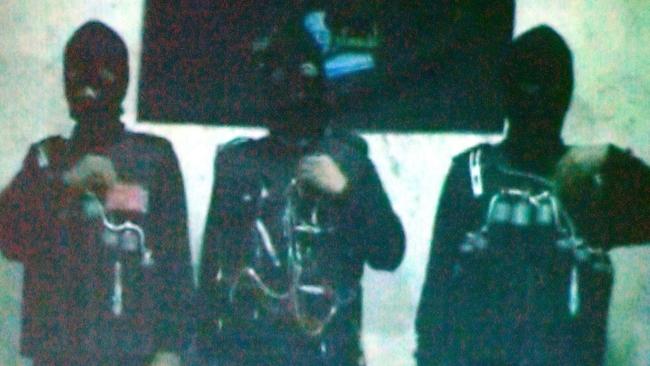
The heads were found at the three blast sites — Raja’s Bar and Restaurant in Kuta, and at the Menega Cafe and Nyoman seafood restaurant, both on the popular Jimbaran beachside strip.
The three perpetrators were eventually identified as: Salik Firdaus (responsible for the bombing at the Njoman Restaurant), Aip Hidayat (responsible for the bombing at the Raja restaurant), and an individual known as Misno (responsible for the bombing at the Madega Café).
It was only after these suicide bombers was identified that police were able to track down the bombing mastermind who has the blood of more Australians on his hands than any other terrorist.
One month after the 2005 Bali bombings Dr Azahari Husin went the way of his many victims — dying violently.
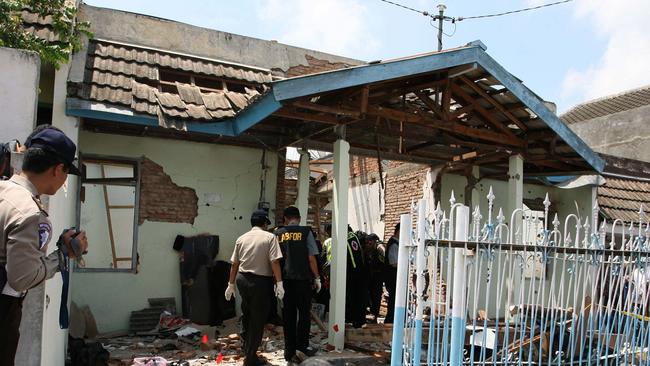
Jemaah Islamiyah’s top bombmaker was preparing to blow himself up when he was shot dead by police who had surrounded his hideout in East Java.
Two of Azahari’s associates also died when Indonesian police raided the house and bomb factory in the hill town of Batu.
About a dozen explosions occurred during the raid by an Indonesian police counter-terrorism unit and more than 30 bombs were found on the premises.
Bali has always been one of the most popular destinations for Australian travellers and, in the months that followed, the tourists returned in ever increasing numbers.
However, it would take seven long years before the authorities tracked down JI’s other bombing mastermind — Noordin Top.
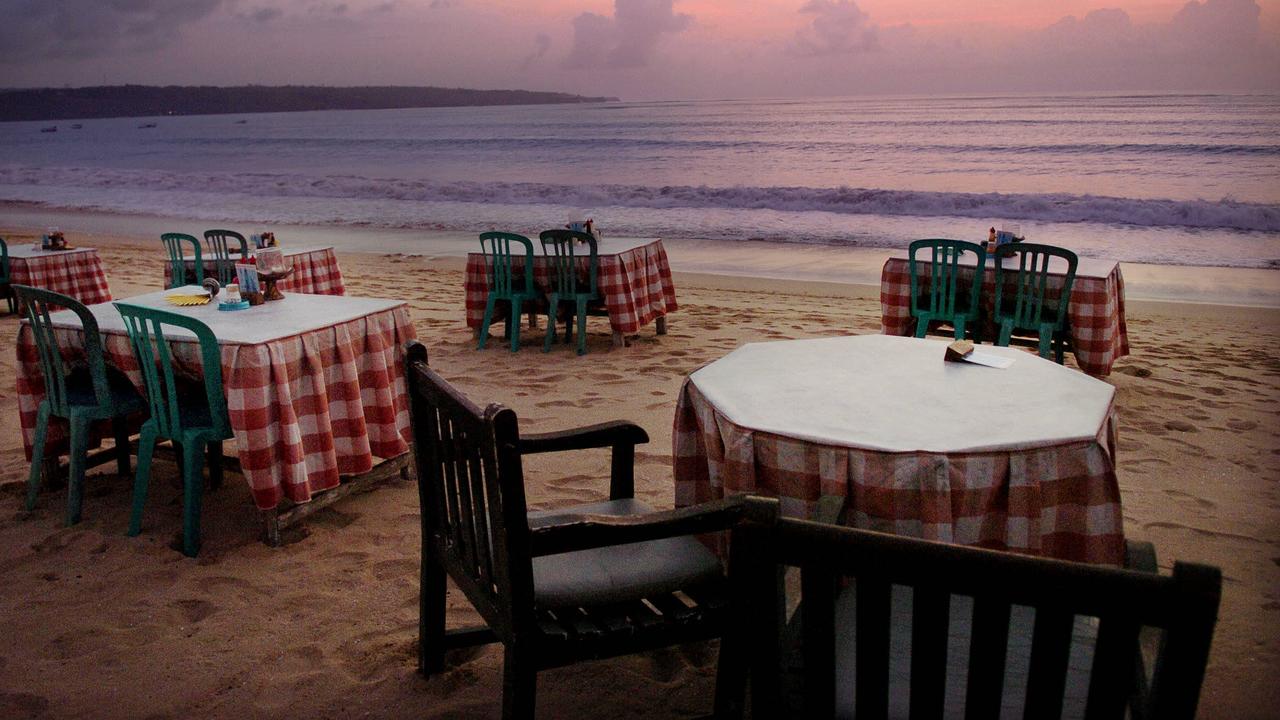
Paradise lost: beachside restaurants at Jimbaran Bay empty one week after the 2005 terrorist bombings.

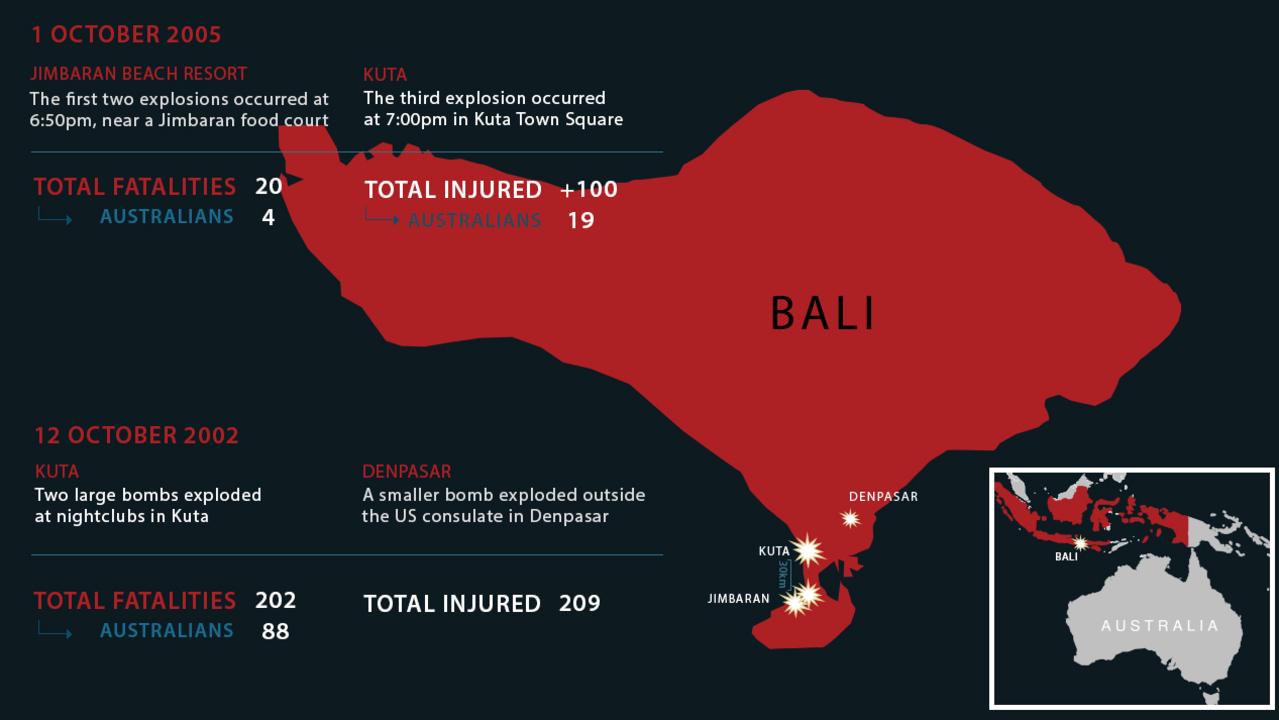
How tragic end of two young lives ripped Echuca families apart
Two well-known drag racing families were torn apart by “a few seconds of thrill” that has left them with a “lifetime of pain”. Read their harrowing words about the impact of the deadly crash.
Long way to the top: The journey of the world’s greatest rock band
The world’s biggest rock band AC/DC packed out regional halls and suburban pubs across Victoria for $3 per ticket before they ever dreamt of selling out stadiums. These lucky fans were front and centre.